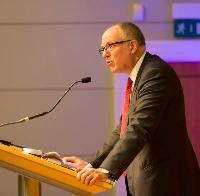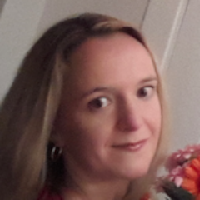Blog
Unless otherwise stated, content is shared under CC-BY-NC Licence
The Effectiveness and Durability of Digital Preservation and Curation Systems: A New Research Project from Ithaka S+R
Oya Y. Rieger is a Senior Strategist and Rebecca Springer is an Analyst, both working at Ithaka S+R, US
The long-term stewardship of digital cultural materials depends not only on the technical resiliency of preservation systems, but on their financial and organizational sustainability. This need has been underscored by the COVID-19 pandemic as many libraries and other cultural heritage organizations brace for sharp budget reductions in the coming fiscal year and beyond. As an organization that provides research and advisory services in support of enhanced access to and preservation of the scholarly record, Ithaka S+R has been exploring the landscape of digital preservation programs and services in order to contribute to the advancement of strategies in support of future scholarship. To address the need for a greater understanding of the business and operational strategies of digital preservation and curation systems (DPCSs), we have launched a research project to examine and assess how these systems are developed, deployed, and sustained. In this project, we will conduct a series of case studies of the business approaches of community-based and commercial DPCS initiatives, offer lessons learned, and propose alternative sustainability models for long-term maintenance and development.
Legal Deposit - Shaping Library Collections of the Future: Preprint Available
It is hard to imagine a more interesting time to work in libraries, nor a more challenging one.
In an era of post-truth obfuscation and sinister deletion, the ability to collect, retain and authenticate is suddenly a super-power; in an era of relentless proliferation, the confidence to select and consolidate, with implied permission to relegate and de-duplicate, is ubiquitously essential; in an era where data is the ‘new oil’ of the ‘information society’, the unassuming librarian holds the keys not only to the past, but now also to the future. One would have thought that this generation more than any other would be the age of the library, an enduring proof of common cause for the common weal: deposit libraries at the summit of our ambition, the record of all we have achieved and source of all we might. Why does it not feel that way?
It’s not yet clear whether the digital turn will be the making of the library or its undoing, given many of these opportunities are disruptive, mostly provisional, and largely originate outside of the library community. These challenges arise just at a moment where the social and economic context of operations are profoundly unsettled, whether through the continuing dysfunction of economics, the puzzling impasses of public discourse, or a global crisis of dislocation and dispossession. With such uncertainty about the times in which we will shortly live, this is no time for an identity crisis. Yet there is little prospect of staying unchanged.
Undelete our government
Richard Ovenden OBE is the President of the Digital Preservation Coalition
This article was originally published in the FInancial Times on the Wednesday 14th October and this version can be accessed here.
Deep in the stacks of the Bodleian Library in Oxford is a remarkable sheet of paper written sometime in the 1660s. It contains an exchange of private messages between King Charles II and his chief minister, Edward Hyde, Earl of Clarendon. The document contains the handwriting of the two men alternating, as they play out a tetchy exchange concerning the monarch’s expenses, costs which Clarendon was struggling to contain. ‘I would willingly make a visit to my sister at Tonbridge for a night or two at farthest’ states the King at the top of the sheet, ‘when do you think I can I can best spare the time?’ Clarendon, with an eye to the cost, replies below with a suggestion, adding ‘I suppose you will go with a light trayne’. The king’s answer is simply that ‘I intend to take nothing but my night bag.’ Clarendon is incensed by this provocational understatement: ‘God, you will not go without 40 or 50 horse’. The Royal put down is epic in its haughty brevity: ‘I counte that parte of my night bag’.
I Can See Clearly Now…. The DPC Member Training Needs Survey
It’s been a busy time lately for me and Amy Currie, the DPC’s Training Officer! Over a short series of blog posts we’re going to fill you in on some of the recent highlights of the DPC’s Workforce Development activities. First up, I’m going to give a brief run down on the results of our recent training needs survey.
In late Spring 2020 I circulated a survey to DPC members to assess current training needs. The purpose of the training survey was twofold:
World Digital Preservation Day: 5th November - Expecting a spectacle
Remember remember the 5th November...
For us here in the UK this date usually means fireworks, toffee apples and huddling round a bonfire as we mark Guy Fawkes Night or Bonfire Night. It’s usually freezing, often raining, but a tradition many* observe anyway as it offers the chance to come together as friends and family, and ‘ooh’ and ‘aah’ at an impressive spectacle whilst eating sweets and treats.
*I know that fireworks are not favoured everyone, most espeically by our dogs of digital preservation. Please enjoy thoughtfully.
I’m not sure there will be many community bonfire-side gatherings this year given the pandemic and various lockdowns still in force, but I’m not at all worried because we have:
Archives in the UK/Republic of Ireland & AI (AURA): Bringing Together Digital Humanists, Computer Scientists & Stakeholders To Unlock Cultural Assets
This is a guest post by Annalina Caputo, Assistant Professor in the School of Computing, Dublin City University. She is working on the AURA Project with Lise Jaillant at Loughborough University as well as colleagues from National University of Ireland Galway, Waterford Institute of Technology and The National Archives.
AI is leading the fourth industrial revolution: its enhanced capabilities propelled by large access to big data and more powerful machines are changing the way we think about day-to-day tasks, machines, and society. Far from the fuss of big news titles, which promise new algorithms for driving cars, writing articles, and generating art masterpieces, the real “Intelligent Revolution” is already happening under our eyes, in a more pervasive and subtle way.
How will this Intelligent Revolution transform born-digital archives? What challenges and opportunities does it open for archives? Which ethical and legal aspects does it imply?
Happy Birthday to Ewe!
It is one year since DPC’s Rapid Assessment Model (DPC RAM) was launched at the iPRES conference in Amsterdam (and in this blog post)
With a busy DPC week of #WeMissiPRES we couldn’t squeeze in a proper first birthday party for DPC RAM, but we do like an opportunity to celebrate so we couldn’t let this special occasion go by unmarked.
A reminder: DPC RAM is a digital preservation maturity model designed to be quick and easy to use. We designed it in conjunction with the Nuclear Decommissioning Authority in the UK, initially as a means of assessing their digital preservation capabilities and setting goals...but ultimately as a useful benchmarking tool for the whole community.
Experiences Preserving 3D data at the Digital Repository of Ireland
Mashal Ahmad is a Software Developer and Kathryn Cassidy is a Software Engineer, both working for the Digital Repository of Ireland.
During the current pandemic, we have seen some wonderful examples of how communities can come together in the face of adversity. We’ve seen everything from viral videos of Italians in lockdown singing from their balconies, images of teddy bears in windows, and a huge range of community efforts to help vulnerable people in their areas. One great initiative that emerged among maker and tech groups was the 3D printing of face shields, at a time when personal protective equipment for health professionals was in short supply world-wide.
DPC Awards 2020
Laura Molloy is the Senior Researcher Lead at CODATA.
Digital Preservation Awards season is upon us! Celebrating excellence in maintaining our digital legacy, the Digital Preservation Awards take place every two years and I’m delighted to be one of this year’s judges.
Digital preservation is a compelling research area as well as the technological bedrock of data infrastructure, and as such the resources and community of the Digital Preservation Coalition are invaluable resources for my work here at CODATA.
Preserving records from an EDRMS - a case study from PRONI
Hugh Campbell works in Digital Preservation & Information Systems for the Public Record Office of Northern Ireland
Doesn’t time fly when you’re waiting for your slot on the DPC blog rota to come around?! I had spent some time thinking about different aspects of digital preservation before deciding on a topic and drafting my blog. Then, a few days before submission, comes an email from Jen Mitcham asking politely if I had considered writing about Electronic Document and Records Management (EDRM) as I am a member of the DPC’s EDRMS Preservation Taskforce. A swift change of course later and here are some of my musings on my EDRM experience.






















































































































































